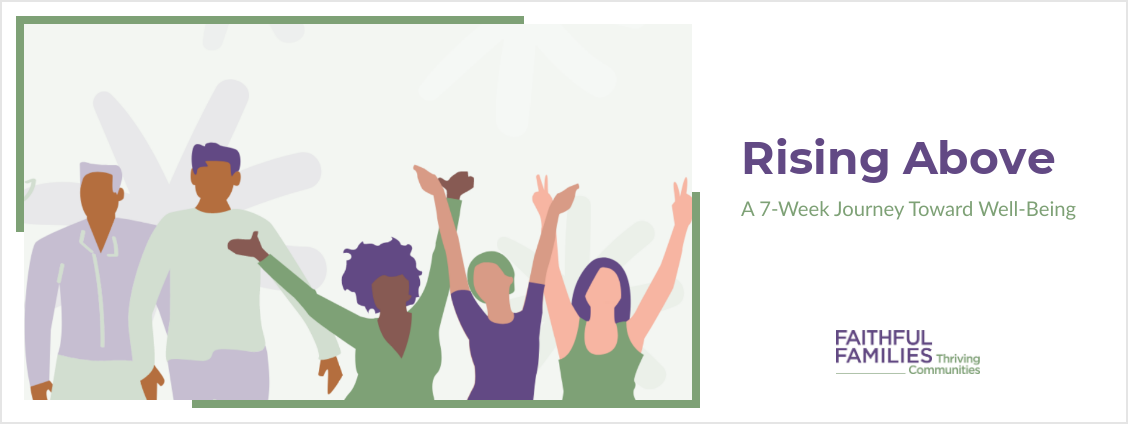
The Faithful Families team recognizes that the past several weeks have been a time of heightened anxiety and stress for so many, especially for our Black, Indigenous and People of Color friends and neighbors. The closely watched trial of Derek Chauvin and the subsequent verdict has, understandably, brought about complex feelings of relief, anger, pain and grief. The increased violence we are witnessing in communities across the country, particularly incidents of violence against Black, Indigenous and People of Color, compounds these feelings. We acknowledge that the collective grief and anxiety we are experiencing can make self-care even more difficult. While our words can’t begin to erase these feelings, we want you to know we are here to support you and stand in solidarity with all those who are hurting now and who have been hurting for so long.
Our team has spent time reflecting this week and compiled the resources below that we hope will be helpful.
Dr. Portia Jackson Preston, who developed the materials for the Rising Above self-care program, developed this short video on healing from racialized trauma in the midst of a pandemic. We hope that this video and the resources below help you find the time and space and resources you need to care for yourself and for those around you now and in the days ahead.
This is a 10 minute video in which I explain how I cope with racialized trauma, and explore a few tips and tools for others to try.
I originally recorded it after an event with students in the days that followed the killing of George Floyd. I knew I needed time off to heal, and this was my way of creating something to help others. It’s sad how often it has been relevant this year.
I know each of you are experiencing this time in different ways. I encourage you to reach out to others for support, here or elsewhere. I’m grateful for our community, and your journey.
-
Novelist Chimamanda Adichie tells the story of how she found her authentic cultural voice — and warns that if we hear only a single story about another person or country, we risk a critical misunderstanding.
-
What does Kendrick Lamar have in common with Disney’s “Moana”? They recognize our common humanity and show us how to love ourselves and one another, says writer and educator Chloé Valdary. In this TED talk, she shares how she uses pop culture to help people develop resilience and advance social change — and explains why cultivating love is the key to connection, healing and moving forward together.
-
In 2020, The On Being Project curated A Care Package for Uncertain Times, a collection of podcasts, poetry, videos and more that seem to meet this moment of continued grief and uncertainty. You can read more about the On Being Project and find more care packages and conversations here.
-
Rev. Dr. Yolanda Pierce writes about “A Theology for Grieving People: https://sojo.net/articles/how-blacklivesmatter-changed-my-theology/theology-grieving-people
-
Dr. Jessica Young Brown writes about “Trauma upon Trauma” at the Faith and Leadership blog, here.
-
Dr. Portia Jackson-Preston offers a list of Resources for Black Lives, including resources for individual self-care and community care on her website here.
-
From their website, the “Loveland Foundation is committed to showing up for communities of color in unique and powerful ways, with a particular focus on Black women and girls. Our resources and initiatives are collaborative and they prioritize opportunity, access, validation, and healing.” Learn more about their work here.
-
From their website, “Melanin & Mental Health® was born out of a desire to connect individuals with culturally competent clinicians committed to serving the mental health needs of Black & Latinx/Hispanic communities. We are committed to promoting the growth and healing of our communities through our website, online directory, and monthly events.” Learn more about their work here.
-
The NC Council of Churches has a list of resources for racial justice on their website.
-
The Courage of Care Coalition offers a series of workshops and online courses for BIPOC people and communities. Visit their website to learn more.
